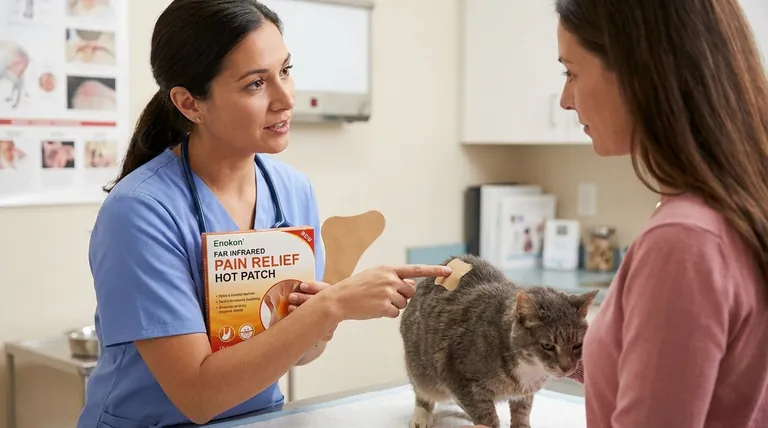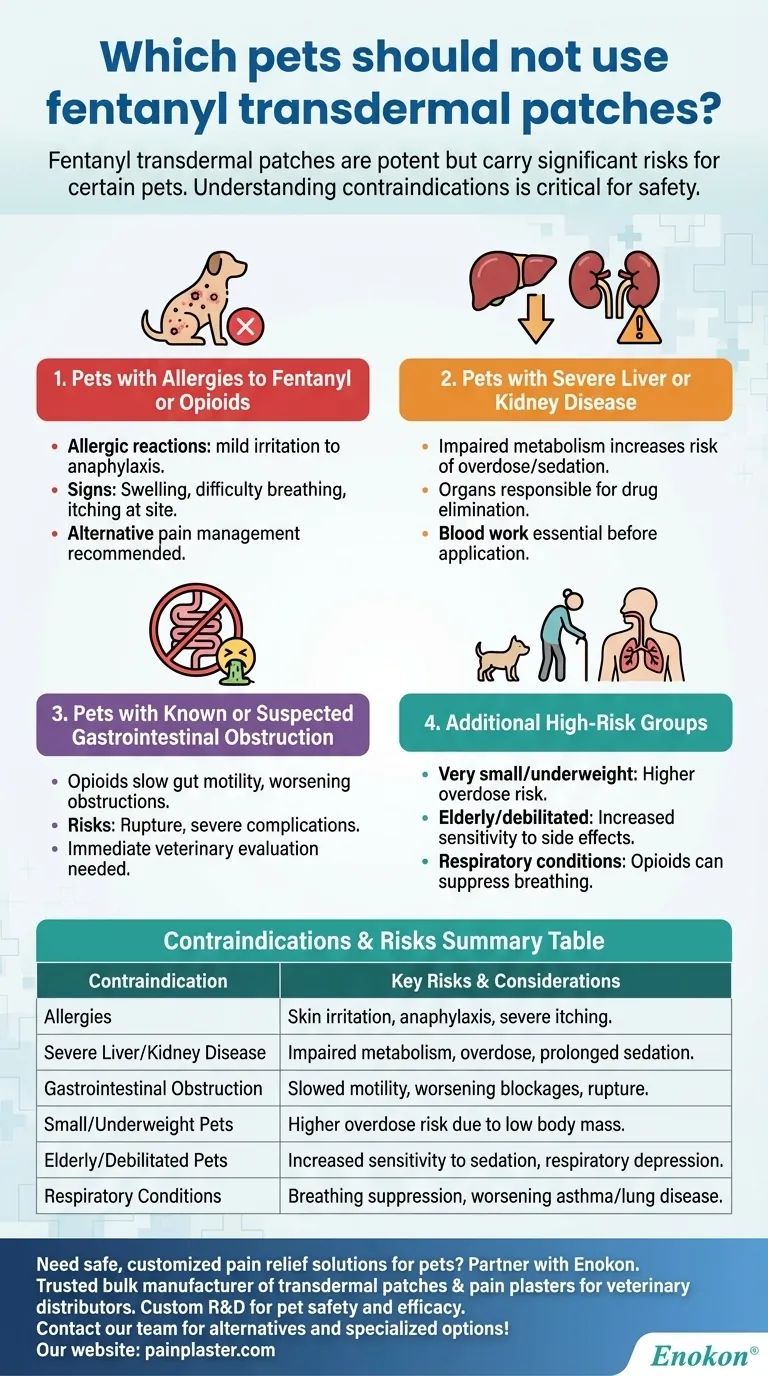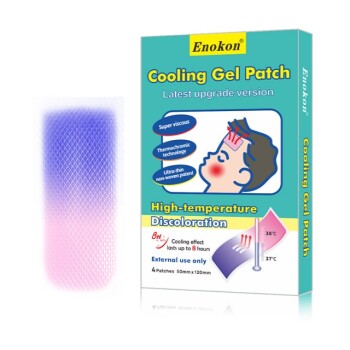Fentanyl transdermal patches are a potent opioid pain management tool, but they carry significant risks for certain pets. While effective for some animals, their use requires careful consideration of the pet's health status, potential allergies, and specific conditions that could lead to dangerous complications. Understanding these contraindications is critical for ensuring pet safety and avoiding adverse reactions.

Key Points Explained:
-
Pets with Allergies to Fentanyl or Other Opioids
- Allergic reactions can range from mild skin irritation to severe anaphylaxis.
- Signs may include swelling, hives, difficulty breathing, or excessive itching at the patch site.
- If a pet has a known opioid allergy, alternative pain management strategies should be considered.
-
Pets with Severe Liver or Kidney Disease
- The liver and kidneys are responsible for metabolizing and eliminating Fentanyl Transdermal Patch.
- Impaired function can lead to drug accumulation, increasing the risk of overdose or prolonged sedation.
- Blood work should be performed to assess liver and kidney function before patch application.
-
Pets with Known or Suspected Gastrointestinal Obstruction
- Opioids slow gut motility, which can worsen obstructions or lead to severe complications like rupture.
- Symptoms of obstruction include vomiting, bloating, and lack of appetite—these pets need immediate veterinary evaluation.
- Alternative pain relief methods (e.g., non-opioid medications) may be safer in such cases.
-
Additional High-Risk Groups
- Very small or underweight pets – Higher risk of overdose due to lower body mass.
- Elderly or debilitated pets – May be more sensitive to opioid side effects like sedation or respiratory depression.
- Pets with respiratory conditions – Opioids can suppress breathing, making them dangerous for animals with asthma or other lung diseases.
Always consult a veterinarian before using fentanyl patches, as proper dosing and monitoring are essential to prevent life-threatening complications.
Summary Table:
| Contraindications for Fentanyl Patches | Key Risks & Considerations |
|---|---|
| Allergies to Fentanyl/Opioids | May cause skin irritation, anaphylaxis, or severe itching. |
| Severe Liver/Kidney Disease | Impaired metabolism can lead to overdose or prolonged sedation. |
| Gastrointestinal Obstruction | Slowed gut motility may worsen blockages or cause rupture. |
| Small/Underweight Pets | Higher overdose risk due to low body mass. |
| Elderly/Debilitated Pets | Increased sensitivity to sedation or respiratory depression. |
| Respiratory Conditions | Opioids can suppress breathing, worsening asthma or lung disease. |
Need safe, customized pain relief solutions for pets? Partner with Enokon, a trusted bulk manufacturer of transdermal patches and pain plasters for veterinary and pharmaceutical distributors. Our expertise in custom R&D ensures tailored formulations that prioritize pet safety and efficacy. Contact our team today to discuss alternatives to fentanyl patches or explore specialized pain management options!
Visual Guide

Related Products
- Far Infrared Deep Heat Relief Patches Medicated Pain Relief Patches
- Menthol Gel Pain Relief Patch
- Icy Hot Menthol Medicine Pain Relief Patch
- Heating Pain Relief Patches for Menstrual Cramps
- Far Infrared Heat Pain Relief Patches Transdermal Patches
People Also Ask
- How does the Deep Heat Back Patch work? A Drug-Free Solution for Targeted Pain Relief
- What are pain relief patches and how are they used? A Guide to Safe, Targeted Relief
- How should pain relief patches be applied and used? A Guide to Safe & Effective Targeted Relief
- How do pain relief patches work? A Guide to Targeted, Long-Lasting Pain Relief
- How do pain relief patches compare to other pain relief methods? Discover Targeted, Long-Lasting Relief














